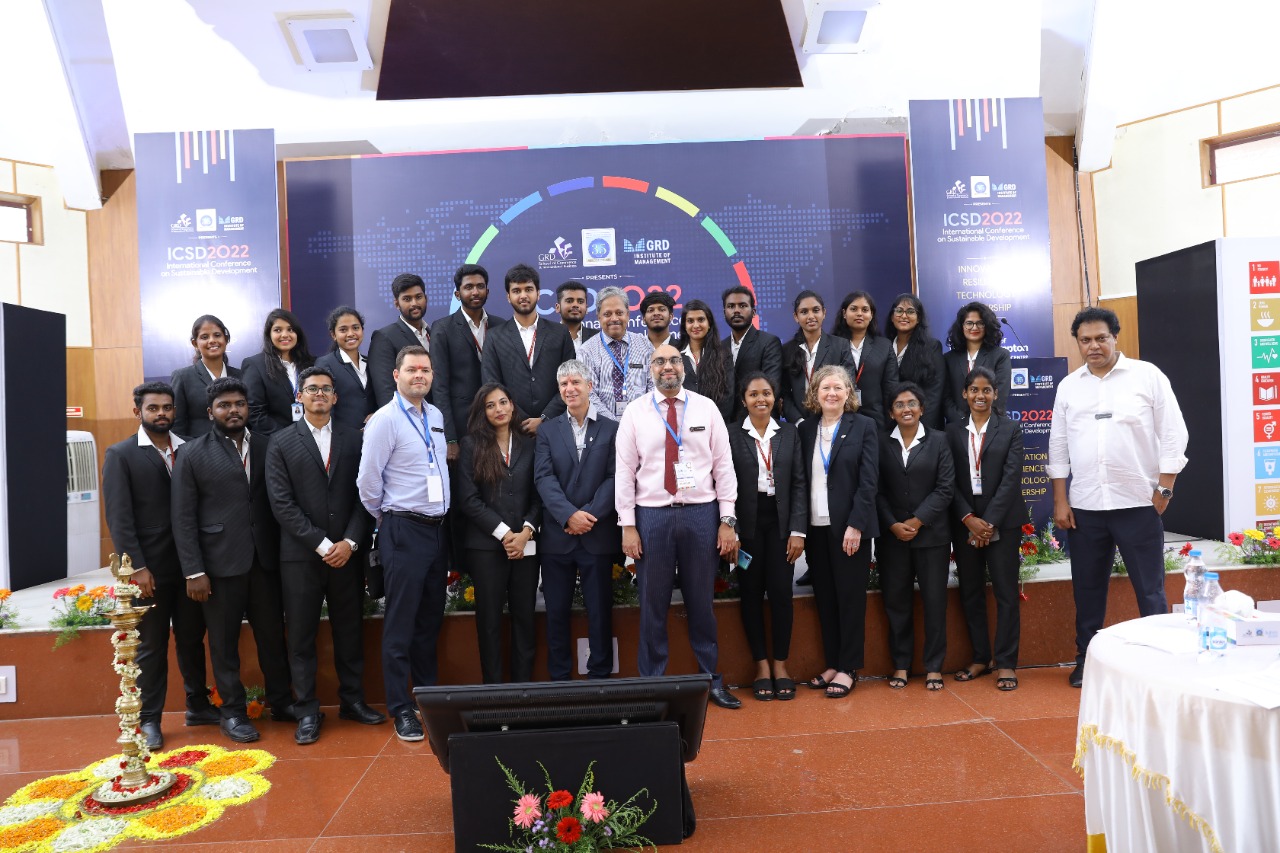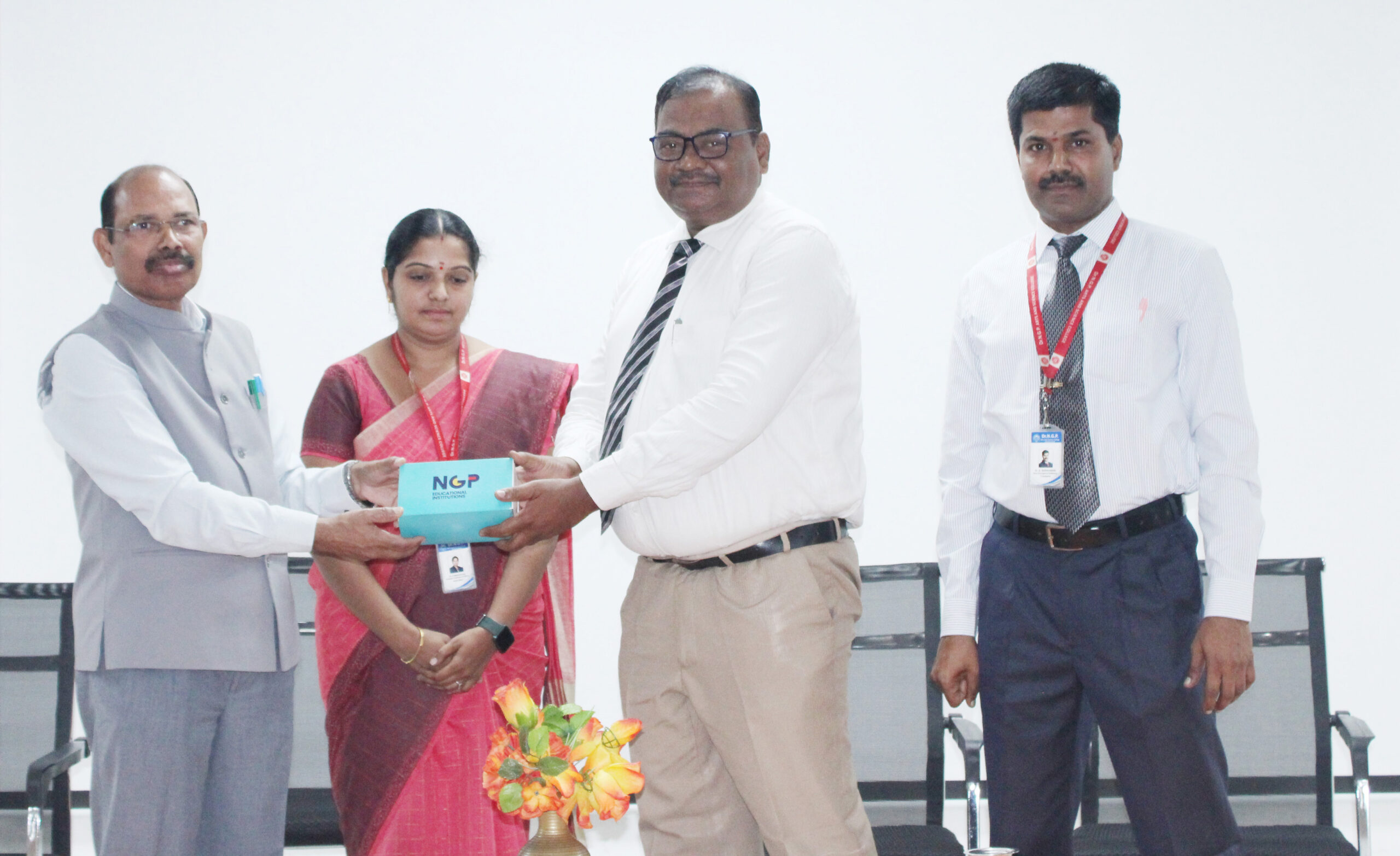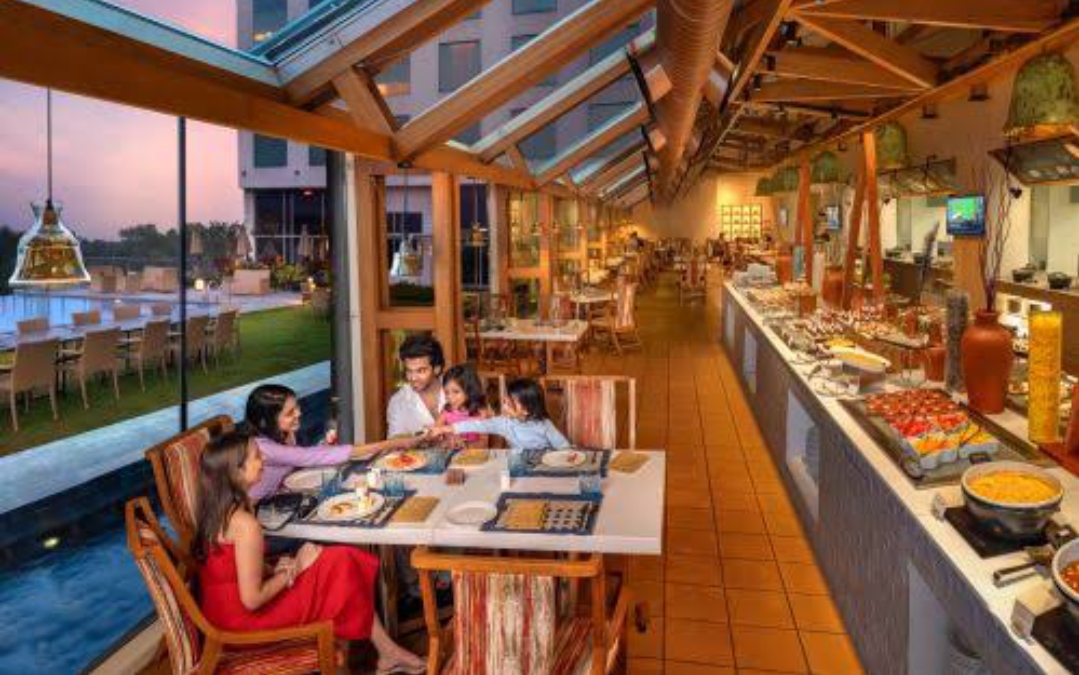Trending Now
- IPL 2024 begins with a bang. First contest between CSK and RCB.
- Election commission allots mike symbol to Naam Thamizhar Katchi
- AIADMK promises to urge for AIIMS in Coimbatore, in its election manifesto.
- Ponmudi becomes higher education minister.
Coimbatore
International Conference on Sustainable Development ICSD – 2022
![]() September 21, 2022
September 21, 2022
International Conference on sustainable Development (ICSD) 2022 was organized by Dr G R Damodaran College of Science, GRD School of Commerce and International Business, Coimbatore on 16th September, 2022. The plenary sessions have global speakers- Prof Yaniv Hanoch, Prof Werner Scholtz, Prof Pauline Leonard, Prof Sabu S Padmadas and Prof Amarjit Singh from the University of Southampton, UK, Ms.Kavitha Thangasami, Exterro discussing on diverse topics.
The goal of the speaker series is to enhance the impact and value of ICSD to students by expanding contents on job readiness in the age of the sustainable development goals.
Additionally, the conference offered students an opportunity to display their internship experience in “The Kaifi Azmi Global India Virtual Internship (KAVI-2022)” which aimed at achieving the sustainable development goals. The conference began traditionally with speakers lighting the lamp and the institution felicitating them with the shawl.
The programme started with the opening speech of Mr.Padma Das. He spoke about the tragic beginning of the 21st Century due to Pandemic. The world has faced vast changes and challenges in last 10 years. This sustainable programme for the generation to be independent. Out future is complex but promising.
Sustainable development can be defined as development that meets the needs of the present without compromising the ability of future generations to meet their own needs.
•Prof. PAULINE LEONARD
Associate Dean Research and Enterprise.
Web Science Institute
Topic: Making Smart fair building sustainable and inclusive transport for cities of the
future.
She spoke on the subject of “Making Smart Fair: Building Sustainable and Inclusive Transport for Cities of the Future.” Her main areas of interest were road transportation, endemic dread, and clever ways to suit the transportation demands of the present and coming generations. She also discussed the disparities between the sexes in urban transportation.
From ‘Predict and provide to decide to opportunity’
Gender in equality in village or undeveloped transport – less opportunity to buy car and lack of facility in public.
She spoke about the opportunity for women and their safety. She said about the importance of using public transport.
She starts her speech by saying how transportation should be safe for all genders. She wonder hoe sustainable it is to build more and more roads. So more and more vehicles can be driven, but that is not sustainable.
“Covid was nice because it offered us to think about this city and how nice it is without vehicles and pollutions”. Public transportation should be more comfortable and safe, so we can reduce manufacturing vehicles hence population can be reduced.
Past Covid city – If offers opportunity to think about the city it to be
•Prof. WERNER SCHOLTZ Head of School, Southampton Law School
Topic : Stockholm + 50 and Sustainable Development
He pertained on the topic “Stockholm+50 and Sustainable development: Reimagining Lex Lata in the Anthropocene”.
He extended his views on the needs and rebalance of relations with non-human species, generational aspects and the HR Framework.
He quoted “Transformation presents an opportunity for law where nature matters”.
Long term sustainable development
Balancing relationship of different kind of species.
Rebalance of relations with other species.
Obstacles are opportunities to reimage sustainable development.
Respect different species and containment of flora and fauna in a same equal society
“We protect what we value” “If we value other species we should protect them”
Integration equity of different species.
Acceleration of environmental components.
Dominance of short – sighted economic value.
Environmental Ethics and laws.
Injection of ecocentric values to respond to planetary boundaries : Short term and Long term.
Regional adaptation
Conservation of nature matters
Ecological realism is more important than the economical financial handling things
Reflection, Commemoration but bold action
Five Dawns.
Current & Future Obstacles &about Species, human.
Respecting the human Resource.
Reimagine your imagination to not to repeat the mistake of past generation.
Values:
We protect what we Value.
Planetary boundaries.
Influence on Current instrument and mechanism.
Rights:
Responding to Global challenges.
Invention & Innovation in effective Manner.
We are not doing enough.
Generational Aspects:
Current and future generations
Equity is the major challenge and independent to sustainable development
HR Framework:
Maastricht Principles
HR framework useful to address climate change.
•Prof. YANIV HANOCH
Professor of Decision Sciences
Southampton Business School
Topic: Sustainability in the Business World
He provided his perspectives on “Sustainability in the Business World.” In order to make the world more sustainable, he emphasised the significance of lowering meat consumption and developing alternatives to reduce fuel usage during shipping. Additionally, he focused on the environment’s indirect effects of crypto currencies.
He spoke about the basic things in which we can bring change and save the natural resources like parlours, logistics, product returns, and crypto currency.
He explains about how business and sustaiability is linked. How it is important to be mindful while running a business “Sustainability is the heart of business “. The richest family in the world has donated a large sum for renewable energy. Business schools now engaged in coming up with different ways to make shipping and export more sustainable.
He suggested business related to sustainable is important and sustainability in the business world.
He shares some example for the business.
1.Hair-dressing – Washing multiple times, wastage of water, Chemical deposition in land, water pollution.
2.Covid – Manchester of India has the made more development and changes in Industrial development.
3.Product returns – Issues for retailer and the process made with packages for product.
4.Crypto currency – Most risky thing bit we can invest in green investment.
•Prof. AMARJIT SINGH Special Advisor of India
University of Southampton
Topic: Leadership: INDIA –UK – International Business Corridor
“The beginning of the 21st century was quite difficult, it though us about disease wars”.
CEO of India Corporate Group, who has worked with some of the most powerful political and business figures in the world, focused on “Leadership: INDIA – UK – International Business Corridor.” He alluded to a 2030 roadmap between India and the UK as well as green technology, green finance, and green bonds.
Relational member of India and UK
UK and India have a free trade agreement.
People, Planet and Profit makes or creates the business and not only profit.
Works up with different sectors .In India/-NITI Ayog, state network sector
Climate change and sustainability are the diference between India and UK.
Green technology
FDI- Free Trade Agreement of India and UK –Tax barrier relaxation
New business models were created during the COVID period
ESG- Environmental Social Governance used in business organisation.
Waste management cannot only be done in UK but also in the other countries of the world.
•Prof. SABU S PADMADAS Associate Dean International Faculty of Social Sciences
Topic: The Zed’s and Alpha’s: Decoding a Sustainable Future
He has shared the following points
He is the co-founder and founding director of University India Centre. He emphasized the significant technological advancement that occurred in recent years as well as the financial empowerment of women. In the next 20 months, India will have the most people, according to his projection.
Alpha generation, Gen Z.
Innovation is very important for Sustainable development.
Empowerment of women of rural areas
Income has changed
Gen Z will see the 22nd century from 21st century
Gen Z might have seen the quite dynamic changes of the society and the planet
Way to progress in the future is to grab opportunities and self-analyse.
Population structure generalise the business ideas
Attaching values in the society is more important
Integrating
Collaborating
Seizing opportunity
Science makes changes in the society tremendously
Start-ups
Do research
Artificial rain-China-invented
Have a innovative mind
Future of world is confronted in the hands of Africa
Future of migration is at Coimbatore
•Ms. KAVITHA THANGASAMI
Chair Research and Development Officer –Exterro
Topic : Technology Innovation : The Exterro Way
Our honourable director is dais about the contribution and service done by GRD students before this pandemic like “Swachathon”. Through this programme we understood that sustainability is the heart of all the business “No one should be left behind”.
CONCLUSION
Sustainable development has been interpreted in various ways by eminent professors for esteemed universities where the students gained lot of knowledge on starups on sustainability which they can use in personal life and career as well.
On the whole, this international conference sowed the seeds in the mind of the students to work towards the attainment of the goals of sustainable development.























